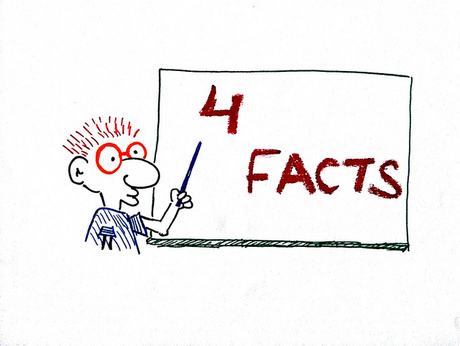Google may rank search results based on facts

Google is evaluating a project to improve the quality of its search results by ranking pages based on truthfulness as well as just popularity.
Google researchers have published a paper describing a method of estimating the trustworthiness of web sources known as “knowledge-based trust”.
Under the proposed system, a source that has few false facts is considered to be trustworthy. By using this method, the researchers evaluated the trustworthiness of 119 million pages by comparing the information against a database of 2.8 billion facts extracted from the web.
Google’s famous PageRank algorithm currently ranks search results by how popular they are. But this means gossip websites - which are not generally considered reliable - are ranked highly, while less popular websites with very accurate information are relegated to the back pages.
With the knowledge-based trust method, pages are evaluated using information gathered from Google’s vast knowledge vault. Information is extracted using 16 different systems to create “knowledge triples” of subjects, predicates and objects.
For searches into the nationality of US president Barack Obama, for example, a knowledge triple would be “Barack Obama, nationality, USA.” Pages that accurately cite Obama’s nationality would therefore be prioritised over those providing false information.
According to the paper, websites with few facts will not be penalised as long as those facts are accurate. The proposed system would also have a mechanism for distinguishing genuine falsehoods from errors introduced during the extraction process.
Applying the method to a database of 119 million web pages shows that the knowledge-based trust system is effective at evaluating the trustworthiness of a page, even when that page has a low PageRank score. Conversely, the 15 most popular gossip websites all received a knowledge-based trust score in the bottom 50% despite their high PageRank.
Putting the system into place could mean that popular but inaccurate gossip sites such as Gawker and TMZ will be penalised by printing false information.
WebProNews contributor Chris Crum commented that the method described could lead to major improvements in the quality of search results, and the knowledge-based trust method has the potential to be a more effective signal than PageRank.
“Questions will remain, however, about just how well Google really is able to distinguish fact from fiction and/or fact versus outdated information,” he said. “We’ve seen Google struggle with this time and time again with its Knowledge Graph. If Google’s ‘knowledge’ is to become the backbone of ranking in the way that PageRank has been historically, it could open the algorithm up to potential errors.”
New Scientist quotes Matt Stempeck, the developer of a browser extension designed to automatically detect fake and hoax emails and print a rebuttal from fact-checking websites such as Snopes, as stating that fact-checking at the browser end could prove useful to challenging falsehoods.
“How do you correct people’s misconceptions? People get very defensive,” he said. “If they’re searching for the answer on Google they might be in a much more receptive state.”
The knowledge-based trust method appears to be effective at determining the trustworthiness of information that has a clear right answer, but not everything is so cut and dried. It is unclear how the algorithm would rank the trustworthiness of a website giving one side of a controversial debate where there is no clear answer, for example.
Of course, there’s no guarantee that Google will even implement the system for its search results, and even if it does, it is likely to be only one of many factors used to evaluate the ranking of an individual page.
Four ways AI can finally make threat intelligence useful and not just noisy
Done poorly, threat intelligence is noise. But done well, it becomes one of the most powerful...
Australia’s top tech priorities for 2026
It is anticipated that AI will evolve from a pilot project to a productive standard, underpinned...
Why AI's longevity lies in utility, not novelty
The real potential of AI is in underpinning the invisible systems powering everyday business.



